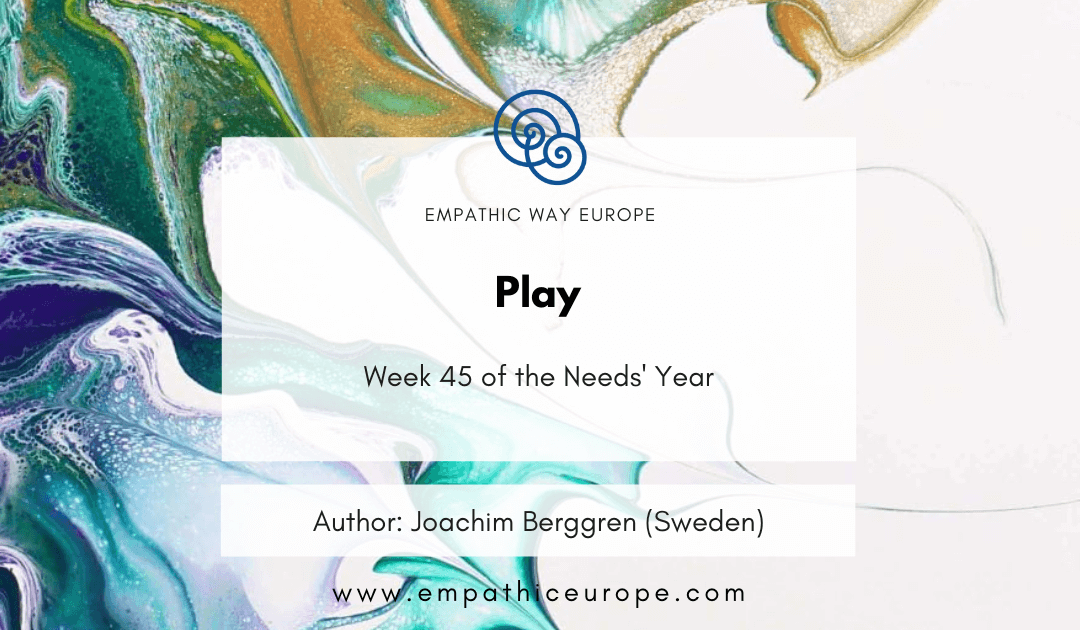The kids are hanging on to me in bunches. A horde of 20 small seven-year-olds are trying to drag me to the ground. I stagger forward and can barely stand up. I plead in a complaining voice: “Please stop! I cannot take it anymore!” This only triggers them to try even more intensively to drag me down. This all goes on for several minutes before the bell finally rings and it’s time for the first lesson to begin.
My daughter was in first grade and this was a scene that often occurred when I dropped her off at school before heading to work. I was a young dad in my late twenties. Almost all of my daughter’s classmates threw themselves on me and enjoyed an adult being playful. I was also having a lot of fun and barely noticed the teacher and the other parents standing by watching it all.
Resistance
About 10 years later when my youngest children were in preschool, a similar scenario repeated itself. This time, however, it was another young father who was being chased by some children. I sat in wonder and watched, a little envious of the energy and playfulness of the father who seemed to be having at least as much fun as the children.
I’m experiencing the same thing today. There is often a resistance in me when a child approaches and suggests playing. Maybe I’m sitting talking to other adults and the idea of interrupting the conversation and starting to play doesn’t feel appealing. I get judgments about myself that I am a boring and rigid adult, probably the same judgments I myself had about adults as a child.
Play throughout life
When I look at us humans as well as at other animals, especially mammals, play seems to be a natural part of our lives. Among our pets, such as cats and dogs, we clearly see that play doesn’t belong only to kittens or puppies. Play appears to be an important ingredient throughout life, perhaps with the exception of the very last period of a creature’s life.
Testing limits
When I think of play, I separate it from sports and games. In sports and games, there is a clear framework, including rules and fixed time slots. Play on the other hand is free and spontaneous and thus more unpredictable. When we play there are no clear goals. We explore and test boundaries. Sometimes we balance on the border of our own and others’ abilities and what is socially and culturally accepted.
By testing boundaries, we learn about our own limitations, both physical and psychological. How high can I climb and how far can I push a joke? We also gain experience of other people’s boundaries and adjust our behaviour to adapt to the group and its social norms. How far can I go without jeopardising the emotional safety? What is ok and what is not ok to do? Sometimes we need to stop and deal with raised emotions when someone’s boundaries have been crossed.
A limited view of play
I can note that I have a limited view of play. I associate playing very much with childhood and toys. Unconsciously, as an adult, I have probably distanced myself from play and the association with childhood it has within me. As part of creating identity, play has gotten less and less space in my life. At the same time, my need for play has expressed itself in strategies I do not spontaneously associate with play, such as joking with friends and colleagues.
Perhaps play is a prerequisite for creativity and development? Maybe it’s an important piece of the puzzle of how we developed through evolution? Play combined with other needs such as creativity, cooperation and meaningfulness have separated the human evolutionary line from the other mammals and brought us to our current stage where we can create so many technological innovations of potential benefit to humanity.
Insights
While writing this blog post, I have had a couple of insights. I’m playing more in my life than I’ve been aware of. My play is not often expressed in childhood strategies. Today it’s more intellectual than physical. Another thing I’ve become aware of is that I want to play more. I want to broaden my strategies, explore my repertoires and see new opportunities. Both for the pleasure of play itself, but also as a strategy for so many other needs in my life.
How often do you play?
Leave a comment below or, if you are a Premium subscriber of “The Needs’ Year”, at the online platform: https://empathiceurope.com/online/courses/the-needs-year/modules/week-43/
Author
Joachim Berggren (CNVC Certified Trainer)
_ _ _ _
On 10 November at 14:00-14:45 CET, you can participate in a Zoom Talk with me and Jacqueline du Plessis. We will talk about the need for play.
Sign up for the Needs’ Year and you will receive a link to Zoom.
If you read this afterward, you can watch the recording when you become a premium subscriber. Check the details HERE.

